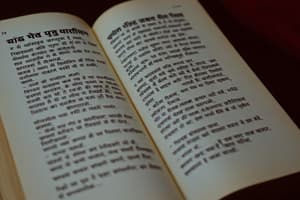Podcast
Questions and Answers
What is the dominant ethnic group in Bangladesh?
What is the dominant ethnic group in Bangladesh?
- Tamil
- Bengali (correct)
- Pakistani
- Sinhalese
Which language has the most widely spoken native speakers in the world?
Which language has the most widely spoken native speakers in the world?
- English
- Hindi
- Bengali (correct)
- Urdu
Who is a prominent figure in the literary history of Bengali language?
Who is a prominent figure in the literary history of Bengali language?
- Matsuo Basho
- Rabindranath Tagore (correct)
- Fyodor Dostoevsky
- William Shakespeare
Which religion is the predominant among the Bengali people?
Which religion is the predominant among the Bengali people?
What is the second-most-spoken language in India, after Hindi?
What is the second-most-spoken language in India, after Hindi?
Which religion is the second-largest among the Bengali people?
Which religion is the second-largest among the Bengali people?
What is Bengali cuisine known for?
What is Bengali cuisine known for?
Who is a prominent figure in Bengali literature?
Who is a prominent figure in Bengali literature?
What significant event occurred in Bengali history in 1905?
What significant event occurred in Bengali history in 1905?
What did the Bengali people fight for during the Liberation War of 1971?
What did the Bengali people fight for during the Liberation War of 1971?
What has shaped Bengali culture over centuries?
What has shaped Bengali culture over centuries?
Which dish is popular in Bengali cuisine?
Which dish is popular in Bengali cuisine?
What type of music is popular among Bengalis?
What type of music is popular among Bengalis?
Which language do the Bengali people strongly identify with?
Which language do the Bengali people strongly identify with?
What does the rich literary and artistic heritage contribute to Bengali culture?
What does the rich literary and artistic heritage contribute to Bengali culture?
What has been a key aspect of Bengali history?
What has been a key aspect of Bengali history?
Flashcards are hidden until you start studying
Study Notes
Bengali
Bengali, also known as Bengal, is a subnational identity and culture associated with the Bengali people. Bengali is the dominant ethnic group in Bangladesh, constituting 98.5% of the population. They speak Bengali, a language that is the most widely spoken native language in the world, with about 221 million native speakers. Bengali culture is a diverse and vibrant blend of tradition, religion, and modernity, shaped by its rich history and geography.
Language
Bengali is an Indo-Aryan language that belongs to the Eastern group of Indo-Aryan languages. It is the official language of Bangladesh and the second-most-spoken language in India, after Hindi. Bengali has a rich literary history, with prominent figures like Rabindranath Tagore, a Nobel laureate, and Kazi Nazrul Islam, a revolutionary poet and writer, contributing to its development.
Religion
Islam is the predominant religion among the Bengali people, with about 89.6% of the population being Muslim. Bengali Muslims are predominantly Sunni, with a small Shia minority. Hinduism is the second-largest religion among the Bengali people, with about 10.5% of the population being Hindu. Bengali Hindus are predominantly Vaishnavas, with a significant number of Shaktas and Shaivites. Christianity, Buddhism, and other religions also have a presence among the Bengali people.
Culture
Bengali culture is a rich tapestry of traditions, customs, and practices that have evolved over centuries. Some of the key aspects of Bengali culture include:
-
Food: Bengali cuisine is known for its diverse range of dishes, including fish, rice, and lentils. Popular dishes include Macher Jhol and Luchi, which are fish curry and fried bread, respectively.
-
Literature: Bengali literature has a long and rich history, with many notable authors and poets contributing to its development. Rabindranath Tagore, the first non-European to win the Nobel Prize in Literature, is a prominent figure in Bengali literature.
-
Art and Music: Bengali art and music are an integral part of the culture, with various forms of art and music being practiced and enjoyed by the Bengali people. Classical music and dance, as well as modern forms of music and art, are popular among Bengalis.
History
The history of Bengali people is marked by a series of events and developments that have shaped their identity and culture. Some key aspects of Bengali history include:
-
Partition of Bengal: The partition of Bengal in 1905 was a significant event in Bengali history, as it led to the creation of a separate political entity for the Bengali people.
-
Liberation War: The Bengali people fought for their independence during the Liberation War of 1971, which led to the establishment of Bangladesh as a sovereign nation.
-
Cultural and Linguistic Identity: The Bengali people have maintained a strong cultural and linguistic identity, despite the challenges and changes they have faced over time.
In conclusion, Bengali is a complex and vibrant culture that has evolved over centuries, shaped by its rich history, geography, and diverse population. The Bengali people have a rich literary and artistic heritage, as well as a strong sense of identity and tradition. Their history is marked by significant events and developments that have shaped their identity and culture, making the Bengali people an integral part of the global community.
Studying That Suits You
Use AI to generate personalized quizzes and flashcards to suit your learning preferences.




